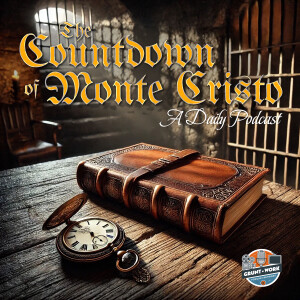

📚 Summary:
Edmond Dantès’ worst suspicions are confirmed as the Château d’If, long a symbol of isolation and political erasure, rises before him. Despite Villefort’s apparent reassurances, the gendarmes escort him silently toward imprisonment with no further inquiry, no explanation, and no opportunity to defend himself. The magnitude of betrayal dawns on Dantès as he realizes he is now a political prisoner—without cause, without trial, and entirely at the mercy of shadowy powers. His silent despair begins to turn into something darker.
✨ What Happens:
•Dantès pleads for information, only to be met with vague hints from the gendarmes.
•The prison comes into view, a forbidding silhouette on the sea—“like a scaffold to a malefactor.”
•Dantès, incredulous, insists he’s committed no crime and reminds the gendarme of Villefort’s promises.
•The gendarme coolly informs him that “all the formalities have been gone through.”
•The emotional weight of betrayal culminates in Dantès clutching the gendarme’s hand in desperation, signaling a profound internal shift.
💡 Thoughts & Reflections:
•The Moment of Betrayal: This is the final collapse of Dantès’ illusions. Every reassurance, every hope rooted in logic or decency, vanishes in the face of raw political manipulation.
•A New Kind of Imprisonment: Dantès isn’t bound in chains—but psychological chains take hold. His inability to understand or alter his fate deepens the horror of his confinement.
•The Gendarme as Mirror: The gendarme’s mundane responses reflect the banality of systemic injustice—how even deeply consequential acts become routine.
•Emotional Pivot Point: The shift from confusion to fury is subtle but pivotal. Dantès’ emotional landscape begins to darken, laying the groundwork for the transformation to come.
📖 Historical & Cultural Context:
•Château d’If’s Reputation: Used to house political enemies and dissidents, the Château d’If had a reputation in France akin to the Tower of London—foreboding, final, and nearly inescapable.
•Political Prisons in Post-Revolutionary France: Although the lettre de cachet system had been abolished, the Restoration government still imprisoned individuals without transparent trials, particularly when accused of Bonapartist sympathy.
•Justice as Performance: The line “all the formalities have been gone through” is chilling—what matters is not truth, but the appearance of legitimacy.
🔮 Foreshadowing:
•Death of Identity: The Château d’If represents the grave of Edmond Dantès the man. What enters its walls will eventually emerge as something new and far more dangerous.
•Transformation through Suffering: This moment marks the first deep fracture in Dantès’ innocence, a necessary step toward his eventual metamorphosis into the Count of Monte Cristo.
•Systemic Injustice as Catalyst: Rather than breaking him entirely, this betrayal will forge Dantès into an agent of vengeance. This chapter lights the spark.
📢 Support the Show:
Enjoy unpacking Dumas’ darkest twists? Subscribe and share the show with fellow literature lovers—and support us on Patreon at patreon.com/gruntworkpod for bonus content and early access to new episodes!
🔍 SEO Keywords: The Count of Monte Cristo podcast, Château d’If, political imprisonment France, Edmond Dantès betrayal, Alexandre Dumas literary analysis, classic literature podcast


